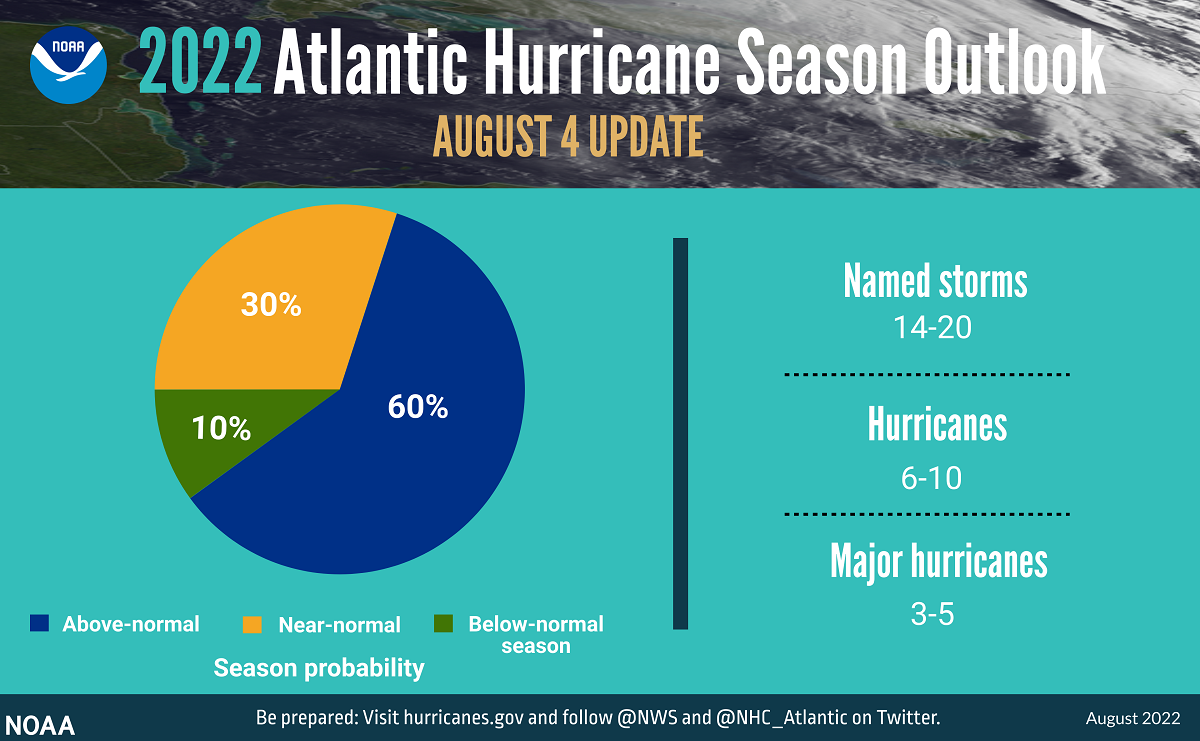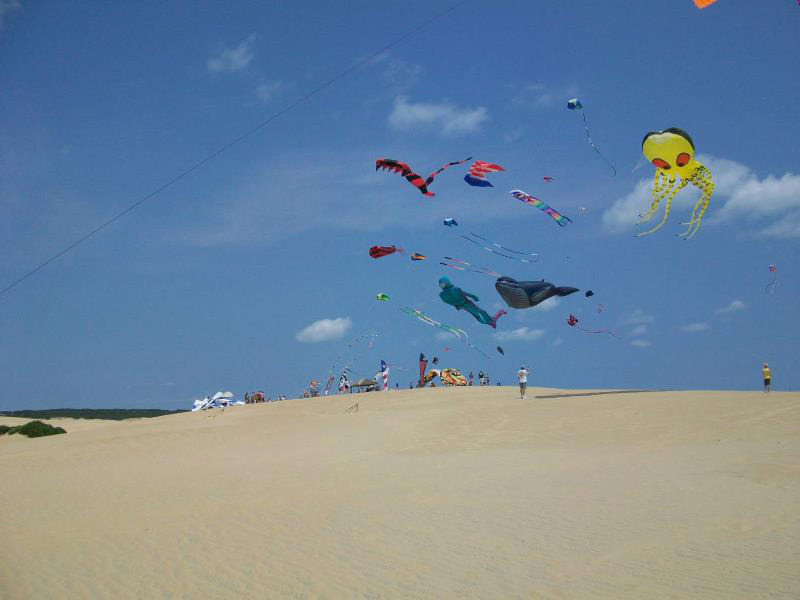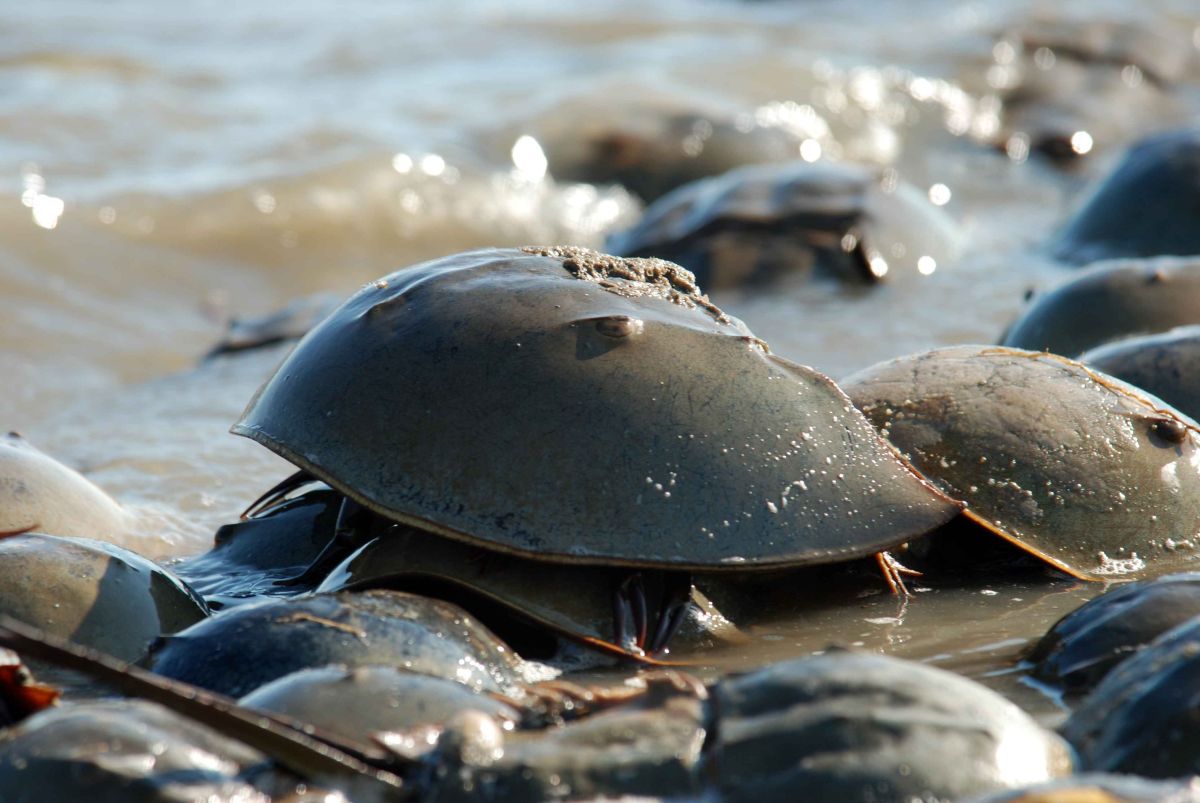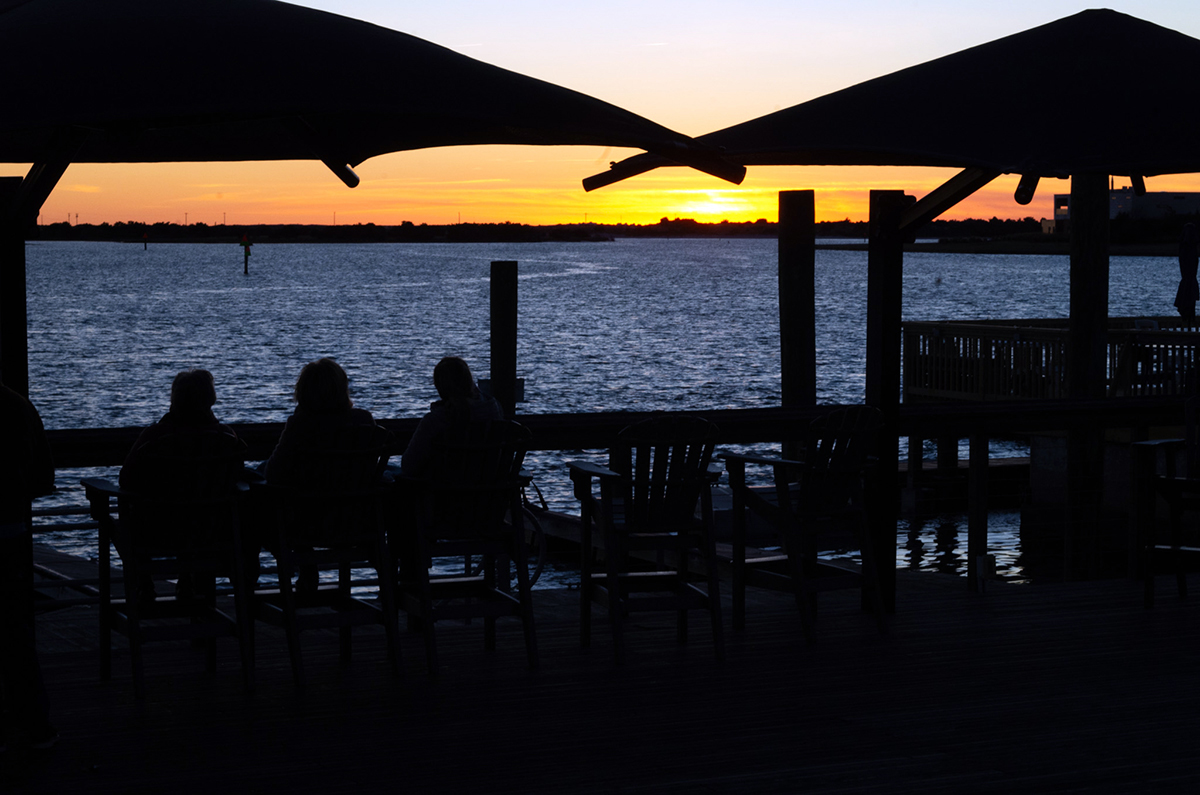
National Oceanic and Atmospheric Administration weather experts still expect the 2022 Atlantic hurricane season to have above-normal activity.
NOAA released Thursday its annual mid-season update to the 2022 outlook issued in May by the Climate Prediction Center, a division of the National Weather Service.
Supporter Spotlight
Since the May report, which covers the six-month hurricane season that began June 1 and ends Nov. 30, forecasters have slightly decreased the likelihood of an above-normal Atlantic hurricane season from 65% to a 60% chance. Meanwhile, the likelihood of near-normal activity has risen to 30% and the chances remain at 10% for a below-normal season.
NOAA’s update to the 2022 outlook calls for 14-20 named storms, which have winds of 39 mph or greater. Six to 10 of those named storms could become hurricanes with winds of 74 mph or greater. Of those, three to five could become major hurricanes with winds of 111 mph or greater. NOAA provides these ranges with a 70% confidence.
“We’re just getting into the peak months of August through October for hurricane development, and we anticipate that more storms are on the way,” said NOAA Administrator Rick Spinrad, in a statement.
Erik Heden, warning coordination meteorologist with the National Weather Service forecast office for Morehead City, told Coastal Review Monday that the peak of hurricane season is not until around Sept. 10.
“Typically the season really doesn’t get going until later in August through October. It’s too early to let our guard down, we aren’t even close to the typical peak yet,” he said. “Lastly, it only takes one storm to make a difference in your lives. Take this quiet time in the season to finish your hurricane kit and plan.”
Supporter Spotlight
He recommended visiting www.weather.gov/MHX/hurricaneprep for help with a hurricane kit and plan.
Heden said his office is offering more hurricane talks ahead, including one at 9 a.m. Wednesday in Emerald Isle board meeting room, 7500 Emerald Drive, and 6 p.m. Aug. 16 in North Topsail Beach Town Hall, 2008 Loggerhead Court. Sign up to virtually attend the North Topsail Beach talk. Two talks are planned for later this month on the Outer Banks, as well.
“Communities and families should prepare now for the remainder of what is still expected to be an active hurricane season,” said Ken Graham, director of the National Weather Service. “Ensure that you are ready to take action if a hurricane threatens your area by developing an evacuation plan and gathering hurricane supplies now, before a storm is bearing down on your community.”
So far, the season has seen three named storms and no hurricanes in the Atlantic Basin. An average hurricane season produces 14 named storms, of which seven become hurricanes, including three major hurricanes.
Related: 2022 Atlantic hurricane season to be above average: NOAA
The outlook is for overall seasonal activity, and is not a landfall forecast. Landfalls are largely governed by short-term weather patterns that are currently only predictable within about one week of a storm potentially reaching a coastline, according to NOAA.
“I urge everyone to remain vigilant as we enter the peak months of hurricane season,” Secretary of Commerce Gina Raimondo said in a statement. “The experts at NOAA will continue to provide the science, data and services needed to help communities become hurricane resilient and climate-ready for the remainder of hurricane season and beyond.”
There are several atmospheric and oceanic conditions that still favor an active hurricane season. This includes La Niña conditions, which are favored to remain in place for the rest of 2022 and could allow the ongoing high-activity era conditions to dominate, or slightly enhance hurricane activity. In addition to a continued La Niña, weaker tropical Atlantic trade winds, an active west African Monsoon and likely above-normal Atlantic sea-surface temperatures set the stage for an active hurricane season and are reflective of the ongoing high-activity era for Atlantic hurricanes.
NOAA’s hurricane science and forecasting information is available at Hurricane Season Media Resource Guide and the National Hurricane Center provides the latest on tropical storm and hurricane activity in the Atlantic.
“Although it has been a relatively slow start to hurricane season, with no major storms developing in the Atlantic, this is not unusual and we therefore cannot afford to let our guard down,” said FEMA Administrator Deanne Criswell. She recommends being proactive by downloading the FEMA app and visiting Ready.gov or Listo.gov for preparedness tips. “And most importantly, make sure you understand your local risk and follow directions from your state and local officials.”







